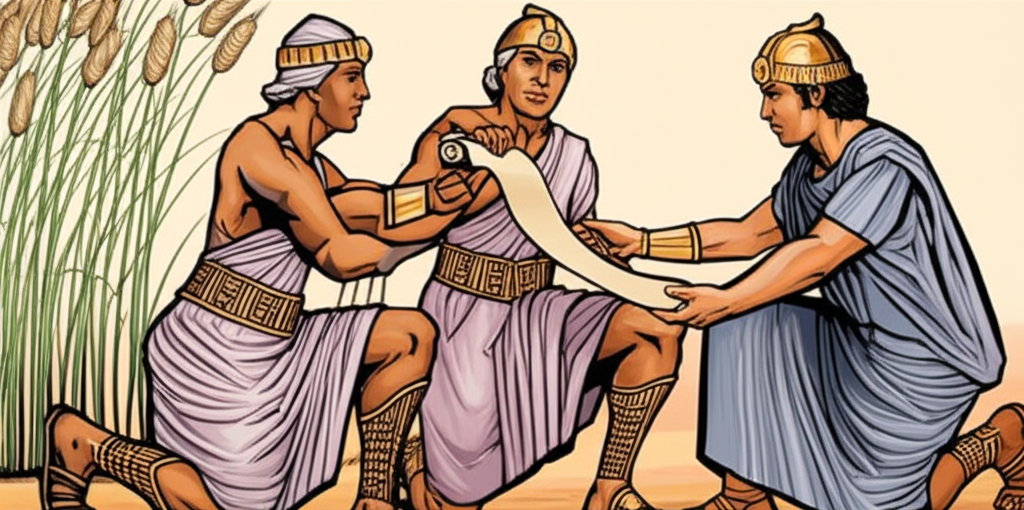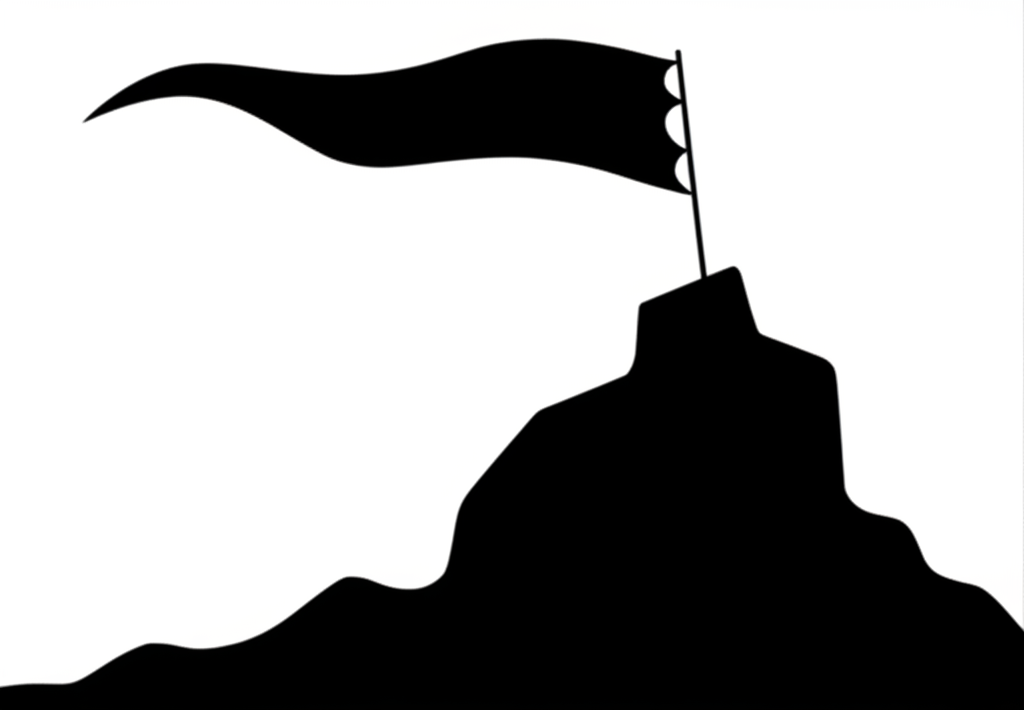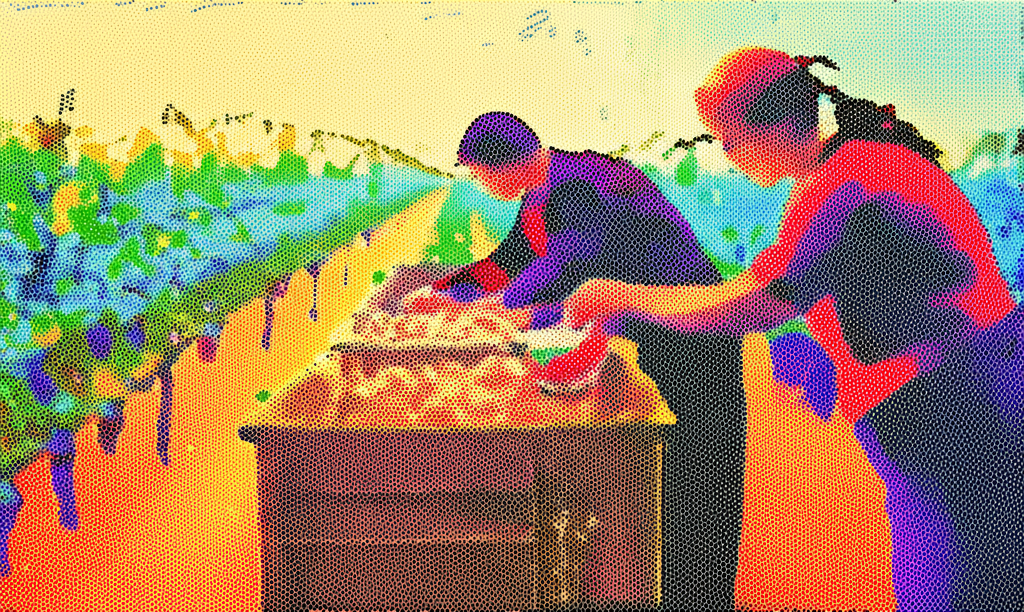Isaiah 18 meaning explained in AI Summary
Isaiah 18 is a short but complex chapter, often considered one of the most difficult to interpret in the entire book. It contains a cryptic oracle against an unnamed nation, often identified as either Ethiopia (Cush) or Egypt. of the chapter's key themes and possible interpretations:
1. A Message to a Distant Land (Verses 1-2):
- The chapter opens with a vivid description of a powerful nation "beyond the rivers of Cush." This nation is characterized by its swift messengers traveling on vessels of papyrus.
- The message is addressed to a "nation tall and smooth-skinned," further fueling debate about the nation's identity.
2. A Warning of Judgment (Verses 3-6):
- The Lord, observing from His heavenly dwelling, issues a warning. He will not remain silent but will act against this proud nation.
- The imagery of a "pruned vine" (verse 5) suggests a once-fruitful nation that has become corrupt and will face judgment.
3. A Time for Repentance and Offering (Verse 7):
- A glimmer of hope emerges. The Lord hints at the possibility of the nation's remnant being brought to Him as an offering. This suggests an opportunity for repentance and reconciliation.
4. The Aftermath of Judgment (Verses 4-6):
- The chapter concludes with a chilling image of the nation's destruction. Its people will be left vulnerable, like "carrion on the face of the field." This serves as a stark reminder of the consequences of defying God.
Interpretations and Significance:
- Ethiopia (Cush): Many scholars believe the oracle targets Ethiopia due to its geographical location "beyond the rivers of Cush" and its historical power during Isaiah's time. The "tall and smooth-skinned" description could refer to the Ethiopians' physical characteristics.
- Egypt: Others argue for Egypt, citing its reliance on the Nile River (represented by the "vessels of papyrus") and its history of conflict with Israel.
- Symbolic Interpretation: Some scholars view the chapter as a broader warning against any nation that opposes God's people and His purposes. The specific nation becomes less important than the universal message of judgment and the call to repentance.
Key Takeaways:
- God's Sovereignty: Isaiah 18 emphasizes God's absolute power and authority over all nations. He observes, judges, and acts according to His divine plan.
- The Consequences of Pride: The chapter serves as a warning against arrogance and defiance of God. Pride leads to destruction, while humility opens the door to grace.
- Hope for Repentance: Even in judgment, God offers a glimmer of hope. The possibility of a remnant being spared suggests that repentance and turning back to God can avert disaster.
Isaiah 18 remains a challenging but ultimately hopeful chapter. It reminds us that God is just and will judge wickedness, but He also desires reconciliation and offers opportunities for repentance.
Isaiah 18 bible study ai commentary
Isaiah 18 announces God's sovereign control over global powers, using an oracle concerning Cush (ancient Ethiopia/Nubia). While a delegation from this powerful nation seeks an alliance with Judah against Assyria, God signals that such human stratagems are unnecessary. He will remain quiet, observing events unfold, and then at the perfect moment, He will swiftly annihilate the Assyrian threat. The ultimate outcome is a prophetic reversal: the nation sought as a military ally will instead become a nation of worshipers, bringing themselves as a "gift" to the Lord on Mount Zion.
Isaiah 18 context
This prophecy is set in the late 8th century BC, likely during the reign of King Hezekiah of Judah. The dominant world power was the brutal Assyrian Empire. At this time, Egypt was ruled by the 25th Dynasty, which originated from Cush (Nubia, modern-day southern Egypt and northern Sudan). These Cushite pharaohs were formidable opponents of Assyria. The chapter depicts ambassadors from this powerful nation traveling to Jerusalem, proposing a military coalition to stand against their common enemy, Assyria. Isaiah’s oracle is God's response to this political maneuvering.
Isaiah 18:1
Woe to the land of whirring wings that is beyond the rivers of Cush,
In-depth-analysis
- Woe (Hebrew: Hoi): This word often introduces a curse or judgment, but here it functions more as an attention-grabbing "Ah!" or "Ho!". It summons a nation to hear God's message rather than condemning it.
- Land of whirring wings (Hebrew: tsiltsal kenaphayim): This is a descriptive and debated phrase. It could refer to:
- Insects: The sound of locusts or other insects common in the Nile region.
- Sails: The sound or sight of the sails of the many reed boats on the Nile.
- Armies: The "shadowing" or "rustling" of a powerful military force.
- Beyond the rivers of Cush: This definitively places the nation south of Egypt, in the region of Nubia/Sudan. It emphasizes its remote and powerful nature from Judah's perspective.
Bible references
- Zephaniah 3:10: "From beyond the rivers of Cush my worshipers, my scattered people, will bring me offerings." (Directly parallels the geography and the theme of an offering from Cush).
- Ezekiel 30:4-5: "A sword will come upon Egypt... Cush and Put, Lydia and all Arabia, Libya and the people of the covenant land will fall by the sword along with them." (Shows Cush as a significant regional power often linked with Egypt).
Cross references
Isa 20:3-5 (Cush's eventual failure), Ps 68:31 (Cush submits to God), Nah 3:9 (Cush's might).
Isaiah 18:2
which sends ambassadors by the sea, in vessels of papyrus on the waters! Go, you swift messengers, to a nation tall and smooth-skinned, to a people feared near and far, a nation mighty and conquering, whose land the rivers divide.
In-depth-analysis
- Ambassadors by the sea: The "sea" (yam) here refers to the Nile River, the great waterway of Egypt and Cush. The ambassadors travel in vessels of papyrus (Hebrew: gome’), which were light, fast boats ideal for the Nile. This is a specific and accurate cultural detail.
- Go, you swift messengers: This is God redirecting the conversation. He sends His own message, possibly through the prophet Isaiah or heavenly beings, to this same nation.
- Description of the people: Isaiah describes the Cushites with respect, not derision.
- Tall and smooth-skinned (Hebrew: memushak u'morat): Refers to the notable physical characteristics of the Nubian people.
- Feared near and far... mighty and conquering: Acknowledges their reputation as a formidable military power.
- Land the rivers divide: Describes the geography of Cush, crisscrossed by the Nile and its tributaries (like the Atbara and Blue Nile).
Bible references
- 2 Kings 19:9: "Now Sennacherib... heard a report that Tirhakah, the king of Cush, was marching out to fight against him." (Historical evidence of the Cushite military threat to Assyria).
- Exodus 2:3: "...she got a papyrus basket for him and coated it with tar and pitch." (Uses the same Hebrew word gome’ for a papyrus vessel).
Cross references
Job 9:26 (swift papyrus skiffs), Jer 2:10-13 (folly of seeking foreign aid).
Isaiah 18:3
All you inhabitants of the world, you who dwell on the earth, when a banner is lifted on the mountains, you shall see it, and when a trumpet is blown, you shall hear it.
In-depth-analysis
- The audience of the message suddenly expands from Cush to the entire world. God's coming action against Assyria is not a private matter but a global event meant to be seen and understood by all nations.
- Banner (Hebrew: nes): A military standard or signal pole lifted on a high place to rally troops or signal an event. In Isaiah, the banner is consistently a symbol of God's divine action, summoning the nations to witness His power.
- Trumpet (Hebrew: shofar): A ram's horn used to signal war, religious festivals, or a call for attention. The combined imagery of the banner and trumpet is a divine muster call, announcing that the Lord himself is going to battle.
Bible references
- Isaiah 11:12: "He will raise a banner for the nations and gather the exiles of Israel..." (The Lord's banner as a rallying point for His people).
- Joel 2:1: "Blow the trumpet in Zion; sound the alarm on my holy hill." (The trumpet as a call to alert God's people of impending divine action).
- Isaiah 5:26: "He lifts up a banner for the distant nations, he whistles for those at the ends of the earth." (God using a banner to summon a foreign army for His purpose).
Cross references
Zech 9:14-16 (The Lord fighting for His people), 1 Thess 4:16 (trumpet call of God).
Isaiah 18:4
For thus the LORD said to me: “I will take my rest, and I will look from my dwelling place, like clear heat in sunshine, like a cloud of dew in the heat of harvest.”
In-depth-analysis
- This is the pivotal verse, revealing God's strategy. In stark contrast to the panicked political activity of humans, God is calm, still, and patient.
- I will take my rest: He will not be stirred to action by human timetables or alliances. He will wait for His own appointed time. This is a divine rejection of the Cushite proposal.
- Look from my dwelling place: He is not detached or unaware, but actively observing.
- Metaphors for God's Presence:
- Clear heat in sunshine: A powerful, intense, yet silent presence that brings things to maturity or fruition.
- Cloud of dew in the heat of harvest: A seemingly gentle but vital presence that ripens the crop just before it is cut. Both images suggest God is allowing events (the Assyrian aggression) to come to a head before He intervenes.
Bible references
- Psalm 2:4: "The One enthroned in heaven laughs; the Lord scoffs at them." (Depicts God's calm sovereignty in the face of human rebellion).
- Habakkuk 2:3: "For the revelation awaits an appointed time... If it seems slow, wait for it; it will certainly come and will not delay." (God's actions operate on His own perfect schedule).
Cross references
Ps 37:7 (Be still before the Lord), Lam 3:26 (It is good to wait quietly).
Isaiah 18:5-6
For before the harvest, when the blossom is over, and the flower becomes a ripening grape, he will cut off the shoots with pruning hooks, and the branches he will take away and lop off. They shall be left together for the birds of prey of the mountains and for the beasts of the earth. And the birds of prey will summer on them, and all the beasts of the earth will winter on them.
In-depth-analysis
- The harvest metaphor is now explained. The "ripening grape" is the Assyrian army, just at the peak of its power and on the verge of its "harvest" (the conquest of Jerusalem).
- Before the harvest: God will intervene at the last possible moment, but before the enemy can achieve its goal.
- He will cut off the shoots: This describes a sudden, violent, and complete destruction. God will not just defeat the army; He will annihilate it, like a vinedresser pruning a vine with extreme prejudice.
- Left for the birds... and beasts: The mighty Assyrian army will be reduced to unburied carrion, a source of food for scavengers for an entire year ("summer" and "winter"). This is a sign of ultimate disgrace and total defeat.
Bible references
- Isaiah 37:36: "Then the angel of the LORD went out and put to death a hundred and eighty-five thousand in the Assyrian camp." (The direct historical fulfillment of this prophecy regarding Sennacherib's army).
- Revelation 19:17-18: "And I saw an angel... calling in a loud voice to all the birds... ‘Come, gather together for the great supper of God, so that you may eat the flesh of kings...’" (Echos the imagery of a defeated army being fed to birds).
- Ezekiel 39:17-20: "‘...Assemble and come... I am preparing a great sacrifice for you on the mountains of Israel. You will eat the flesh of mighty men...’" (The prophecy against Gog uses identical imagery).
Cross references
Joel 3:13 (Put in the sickle, for the harvest is ripe), Rev 14:18-20 (the vine of the earth is harvested).
Isaiah 18:7
At that time a gift shall be brought to the LORD of hosts from a people tall and smooth-skinned, from a people feared near and far, a nation mighty and conquering, whose land the rivers divide, to the place of the name of the LORD of hosts, to Mount Zion.
In-depth-analysis
- At that time: A prophetic phrase indicating a consequence of the preceding events. After witnessing God's miraculous deliverance, the perspective of the Cushites changes.
- A gift (Hebrew: shai) shall be brought: They no longer come with a proposal for a military alliance, but with a tribute or offering of worship. The ultimate "gift" is the people themselves, turning to the true God.
- From a people tall and smooth-skinned...: The chapter deliberately repeats the description from verse 2. The very same formidable, powerful nation is now humbled in worship. The military power is now a spiritual pilgrim.
- To Mount Zion: The destination is specific. Worship is directed to the God of Israel at His dwelling place in Jerusalem, acknowledging His unique Lordship.
Bible references
- Acts 8:27-28: "So he started out, and on his way he met an Ethiopian eunuch, an important official in charge of all the treasury of the Kandake (which means “queen of the Ethiopians”). ...he had gone to Jerusalem to worship." (A literal and powerful early fulfillment, a high-ranking Cushite becomes a believer).
- Psalm 68:31: "Envoys will come from Egypt; Cush will submit herself to God." (A prophetic promise that finds its echo and fulfillment here).
- Zephaniah 3:10: "From beyond the rivers of Cush my worshipers... will bring me offerings." (The clearest parallel prophecy in the Old Testament).
- Malachi 1:11: "For from the rising of the sun to its setting my name will be great among the nations, and in every place incense will be offered to my name, and a pure offering." (Prophecy of future Gentile worship).
Cross references
Isa 2:2-3 (Nations stream to Zion), Isa 60:5-7 (Nations bring their wealth as worship), Ps 72:10 (Kings bring gifts).
Isaiah chapter 18 analysis
- Sovereignty over Human Alliances: The chapter is a powerful polemic against relying on human strength and political maneuvering. Judah is tempted to trust the mighty nation of Cush, but God demonstrates that He alone is the source of salvation.
- Dual Fulfillment: The chapter has a clear near-fulfillment in the historical destruction of Sennacherib's army and the subsequent awe it inspired. It also contains a far-fulfillment, pointing to the Messianic age where Gentiles from all nations, including the furthest reaches like Cush, will come to worship God. The story of the Ethiopian eunuch in Acts 8 is a perfect "firstfruits" of this long-range prophecy.
- From Politics to Worship: Isaiah 18 masterfully shows a transformation. What begins as an international political summit (v. 2) ends as an international worship service (v. 7). Military power gives way to spiritual pilgrimage.
- The Gospel in the Old Testament: This chapter is a clear testimony to God's plan of inclusion for the Gentiles. Long before Christ, God signaled that His salvation was not for Israel alone but would draw people from "the ends of the earth" to Himself. The feared conqueror is welcomed as a fellow worshiper.
Isaiah 18 summary
God addresses a message to the powerful nation of Cush (Ethiopia), whose envoys seek an alliance with Judah against Assyria. God dismisses this plan, stating He will wait in sovereign calm until the perfect moment to unilaterally destroy the Assyrian army before it can succeed. The prophecy concludes that after witnessing God’s power, this same mighty Cushite nation will bring a gift of worshipers to the Lord in Zion, transforming a political embassy into a spiritual pilgrimage.
Isaiah 18 AI Image Audio and Video









Isaiah chapter 18 kjv
- 1 Woe to the land shadowing with wings, which is beyond the rivers of Ethiopia:
- 2 That sendeth ambassadors by the sea, even in vessels of bulrushes upon the waters, saying, Go, ye swift messengers, to a nation scattered and peeled, to a people terrible from their beginning hitherto; a nation meted out and trodden down, whose land the rivers have spoiled!
- 3 All ye inhabitants of the world, and dwellers on the earth, see ye, when he lifteth up an ensign on the mountains; and when he bloweth a trumpet, hear ye.
- 4 For so the LORD said unto me, I will take my rest, and I will consider in my dwelling place like a clear heat upon herbs, and like a cloud of dew in the heat of harvest.
- 5 For afore the harvest, when the bud is perfect, and the sour grape is ripening in the flower, he shall both cut off the sprigs with pruning hooks, and take away and cut down the branches.
- 6 They shall be left together unto the fowls of the mountains, and to the beasts of the earth: and the fowls shall summer upon them, and all the beasts of the earth shall winter upon them.
- 7 In that time shall the present be brought unto the LORD of hosts of a people scattered and peeled, and from a people terrible from their beginning hitherto; a nation meted out and trodden under foot, whose land the rivers have spoiled, to the place of the name of the LORD of hosts, the mount Zion.
Isaiah chapter 18 nkjv
- 1 Woe to the land shadowed with buzzing wings, Which is beyond the rivers of Ethiopia,
- 2 Which sends ambassadors by sea, Even in vessels of reed on the waters, saying, "Go, swift messengers, to a nation tall and smooth of skin, To a people terrible from their beginning onward, A nation powerful and treading down, Whose land the rivers divide."
- 3 All inhabitants of the world and dwellers on the earth: When he lifts up a banner on the mountains, you see it; And when he blows a trumpet, you hear it.
- 4 For so the LORD said to me, "I will take My rest, And I will look from My dwelling place Like clear heat in sunshine, Like a cloud of dew in the heat of harvest."
- 5 For before the harvest, when the bud is perfect And the sour grape is ripening in the flower, He will both cut off the sprigs with pruning hooks And take away and cut down the branches.
- 6 They will be left together for the mountain birds of prey And for the beasts of the earth; The birds of prey will summer on them, And all the beasts of the earth will winter on them.
- 7 In that time a present will be brought to the LORD of hosts From a people tall and smooth of skin, And from a people terrible from their beginning onward, A nation powerful and treading down, Whose land the rivers divide? To the place of the name of the LORD of hosts, To Mount Zion.
Isaiah chapter 18 niv
- 1 Woe to the land of whirring wings along the rivers of Cush,
- 2 which sends envoys by sea in papyrus boats over the water. Go, swift messengers, to a people tall and smooth-skinned, to a people feared far and wide, an aggressive nation of strange speech, whose land is divided by rivers.
- 3 All you people of the world, you who live on the earth, when a banner is raised on the mountains, you will see it, and when a trumpet sounds, you will hear it.
- 4 This is what the LORD says to me: "I will remain quiet and will look on from my dwelling place, like shimmering heat in the sunshine, like a cloud of dew in the heat of harvest."
- 5 For, before the harvest, when the blossom is gone and the flower becomes a ripening grape, he will cut off the shoots with pruning knives, and cut down and take away the spreading branches.
- 6 They will all be left to the mountain birds of prey and to the wild animals; the birds will feed on them all summer, the wild animals all winter.
- 7 At that time gifts will be brought to the LORD Almighty from a people tall and smooth-skinned, from a people feared far and wide, an aggressive nation of strange speech, whose land is divided by rivers? the gifts will be brought to Mount Zion, the place of the Name of the LORD Almighty.
Isaiah chapter 18 esv
- 1 Ah, land of whirring wings that is beyond the rivers of Cush,
- 2 which sends ambassadors by the sea, in vessels of papyrus on the waters! Go, you swift messengers, to a nation tall and smooth, to a people feared near and far, a nation mighty and conquering, whose land the rivers divide.
- 3 All you inhabitants of the world, you who dwell on the earth, when a signal is raised on the mountains, look! When a trumpet is blown, hear!
- 4 For thus the LORD said to me: "I will quietly look from my dwelling like clear heat in sunshine, like a cloud of dew in the heat of harvest."
- 5 For before the harvest, when the blossom is over, and the flower becomes a ripening grape, he cuts off the shoots with pruning hooks, and the spreading branches he lops off and clears away.
- 6 They shall all of them be left to the birds of prey of the mountains and to the beasts of the earth. And the birds of prey will summer on them, and all the beasts of the earth will winter on them.
- 7 At that time tribute will be brought to the LORD of hosts from a people tall and smooth, from a people feared near and far, a nation mighty and conquering, whose land the rivers divide, to Mount Zion, the place of the name of the LORD of hosts.
Isaiah chapter 18 nlt
- 1 Listen, Ethiopia ? land of fluttering sails
that lies at the headwaters of the Nile, - 2 that sends ambassadors
in swift boats down the river.
Go, swift messengers!
Take a message to a tall, smooth-skinned people,
who are feared far and wide
for their conquests and destruction,
and whose land is divided by rivers. - 3 All you people of the world,
everyone who lives on the earth ?
when I raise my battle flag on the mountain, look!
When I blow the ram's horn, listen! - 4 For the LORD has told me this:
"I will watch quietly from my dwelling place ?
as quietly as the heat rises on a summer day,
or as the morning dew forms during the harvest." - 5 Even before you begin your attack,
while your plans are ripening like grapes,
the LORD will cut off your new growth with pruning shears.
He will snip off and discard your spreading branches. - 6 Your mighty army will be left dead in the fields
for the mountain vultures and wild animals.
The vultures will tear at the corpses all summer.
The wild animals will gnaw at the bones all winter. - 7 At that time the LORD of Heaven's Armies will receive gifts
from this land divided by rivers,
from this tall, smooth-skinned people,
who are feared far and wide for their conquests and destruction.
They will bring the gifts to Jerusalem,
where the LORD of Heaven's Armies dwells.
- Bible Book of Isaiah
- 1 The Wickedness of Judah
- 2 The Mountain of the Lord
- 3 Judgment on Judah and Jerusalem
- 4 The Branch of the Lord Glorified
- 5 The Vineyard of the Lord Destroyed
- 6 Isaiah's Vision of the Lord
- 7 Isaiah Sent to King Ahaz
- 8 The Coming Assyrian Invasion
- 9 For to Us a Child Is Born
- 10 Judgment on Arrogant Assyria
- 11 The Righteous Reign of the Branch
- 12 The Lord Is My Strength and My Song
- 13 The Judgment of Babylon
- 14 The Restoration of Jacob
- 15 An Oracle Concerning Moab
- 16 Send the lamb to the ruler of the land, from Sela, by way of the desert, to the
- 17 An Oracle Concerning Damascus
- 18 An Oracle Concerning Cush
- 19 An Oracle Concerning Egypt
- 20 A Sign Against Egypt and Cush
- 21 Fallen, Fallen Is Babylon
- 22 An Oracle Concerning Jerusalem
- 23 An Oracle Concerning Tyre and Sidon
- 24 Judgment on the Whole Earth
- 25 God Will Swallow Up Death Forever
- 26 You Keep Him in Perfect Peace
- 27 The Redemption of Israel
- 28 Judgment on Ephraim and Jerusalem
- 29 The Siege of Jerusalem
- 30 Do Not Go Down to Egypt
- 31 Woe to Those Who Go Down to Egypt
- 32 A King Will Reign in Righteousness
- 33 O Lord, Be Gracious to Us
- 34 Judgment on the Nations
- 35 The Ransomed Shall Return
- 36 Sennacherib Invades Judah
- 37 Hezekiah Seeks Isaiah's Help
- 38 Hezekiah's Sickness and Recovery
- 39 Envoys from Babylon
- 40 Comfort for God's People
- 41 Fear Not, for I Am with You
- 42 The Lord's Chosen Servant
- 43 Israel's Only Savior
- 44 Israel the Lord's Chosen
- 45 The great king Cyrus
- 46 The Idols of Babylon and the One True God
- 47 The Humiliation of Babylon
- 48 Israel Refined for God's Glory
- 49 The Servant of the Lord
- 50 Israel's Sin and the Servant's Obedience
- 51 The Lord's Comfort for Zion
- 52 The Lord's Coming Salvation
- 53 Who has believed our report
- 54 The Eternal Covenant of Peace
- 55 The Compassion of the Lord
- 56 Salvation for Foreigners
- 57 Israel's Futile Idolatry
- 58 True and False Fasting
- 59 Evil and Oppression
- 60 Arise Shine for your light has come
- 61 The Spirit of the Lord is upon me
- 62 Zion's Coming Salvation
- 63 The Lord's Day of Vengeance
- 64 Oh that you would rend the heavens and come down, that the mountains might
- 65 Judgment and Salvation
- 66 The Humble and Contrite in Spirit